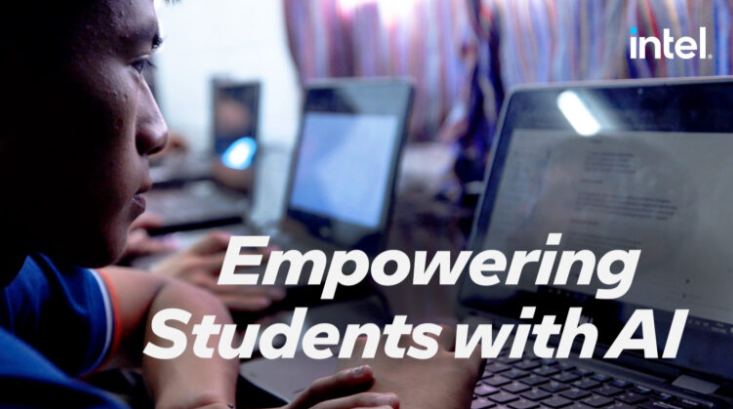Empowering Guatemala’s Students with Offline AI — A New Chapter in Education Without the Internet
Release time:Jul 9, 2025
Views:88

In the heart of Guatemala City—a vibrant hub of art, culture, and family—millions face the daily challenge of poverty. Of the 3.2 million residents, 57% live below the poverty line, many of whom are children without access to the internet. These students are part of the 1.3 billion children worldwide who are cut off from the vast educational resources the web provides.
Yet, in a quiet corner of this bustling city, a transformative initiative is changing lives. At Esperanza Juvenil, a nonprofit school and boarding program, students are now harnessing the power of artificial intelligence—even without internet connectivity. Thanks to donations of Dell laptops powered by Intel® Core™ Ultra processors, a new world of learning has opened up for them.
AI-Powered Learning, No Internet Required
These aren’t just ordinary laptops—they’re AI PCs. Each device is equipped with a CPU, GPU, and NPU, enabling them to run complex AI tasks directly on the machine. This edge computing capability allows the devices to operate offline, delivering advanced educational tools to places with limited or no internet access.
Each laptop includes a custom large language model (LLM) tutor, developed by World Wide Technology, designed to offer personalized learning experiences without needing an online connection. This model enables students to learn at their own pace in subjects like Spanish, English, and math, while allowing teachers to review chat transcripts and better tailor their instruction.
Most importantly, the AI system is culturally contextualized—adapted specifically to the Guatemalan environment. “Imagine a personalized AI tutor trained to understand local nuances and respond to region-specific questions,” says Bharath Srivats, AI Product Marketing Engineer at Intel. “That’s the power of edge AI—it brings learning to where it’s needed most.”
Designed to Scale and Empower
Built with open-source tools to reduce vendor lock-in and costs, the solution is scalable—ready to expand into other schools, subjects, languages, and countries. “These kids have already overcome so much,” says Susana Rios, Executive Director of Esperanza Juvenil. “They’re eager to change their futures through quality education.”
Lucas Pinzon, School Director, adds: “We believe that access to great education opens doors. AI is helping us provide that access.”Srivats, who grew up in a remote town in southern India, relates deeply to the experience. “If I had internet back then, I might’ve learned something. But if I had an AI tutor like this—it would’ve changed everything.”
From the Edge to the World
While developing edge AI models for remote regions comes with logistical hurdles, Bob Olwig, EVP of World Wide Technology, believes in its transformative potential. “We’re proving that Intel’s technology can run powerful LLMs at the edge. Our mission is to democratize access to this cutting-edge technology for students worldwide.”
Beyond tutoring, offline AI can serve in remote research, manufacturing, agriculture, search and rescue, and more. “By keeping workloads on-device instead of in the cloud, organizations can dramatically reduce operational costs,” Srivats explains. “Using open-source models locally, AI becomes affordable and portable.”
A Vision for Global Impact
The Guatemala project highlights the power of on-device AI accelerators to bring edge intelligence where it’s needed most. Intel and World Wide Technology plan to expand this initiative to schools in India, Africa, and South America—bringing opportunity to students who would otherwise be left behind.
“I saw myself in those kids today,” Srivats reflects. “They have what I didn’t—a powerful AI partner guiding their education. AI won’t cure cancer or unify the laws of physics—but the students learning with AI might. That’s why we need to empower the next generation with the tools to spark the next wave of innovation.”

FIND US
UNIT2223,22/F YAN'S TOWER 25 - 27 WONG CHUK HANG RD
ABERDEEN HONG KONG
POLICIES Quality & Certifications
Privacy Policy
Privacy Policy
RESOURCES Product Categories
Manufacturers
News & Articles
Manufacturers
News & Articles
SERVICES Send RFQ
Contact Us
Contact Us
QUICK INQUIRY Send the product number you need at any time, we will give you the first time accurate reply  Submit RFQ
Submit RFQ
 Submit RFQ
Submit RFQ © 2025 SUNETHER TECHNOLOGY LIMITED. All rights reserved.




